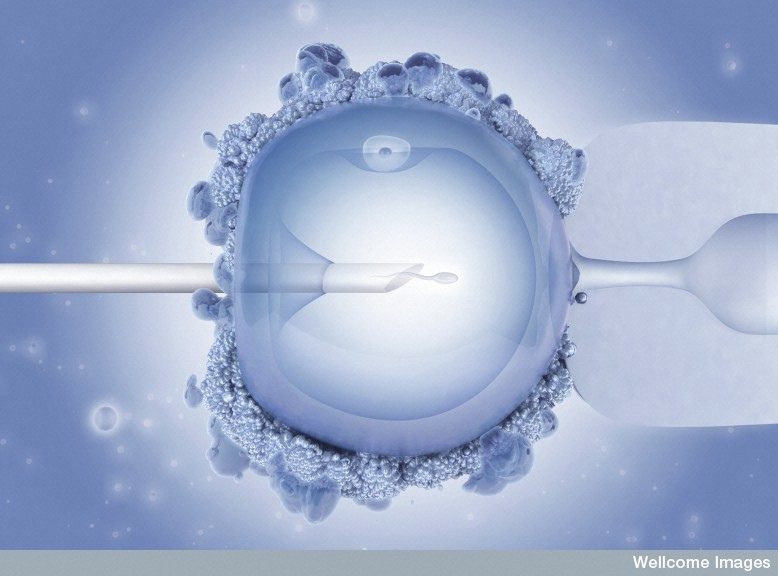Science fiction took a step closer to reality recently when researchers announced they had successfully altered human genes in order to potentially eradicate genetically inherited health conditions. While the ability to save human lives is always an astounding accomplishment, doing so by purposefully creating human embryos with a disease only to cure them and then destroy them is an unethical way to approach medicine. It also opens the door to creating designer babies who would be forced to live up to unrealistic expectations.
Researchers have called gene editing through a method known as CRISPR “fun,” but you would have to believe that taking human lives is enjoyable in order to celebrate this most recent breakthrough in gene editing. There isn’t anything “fun” about eugenics. CRISPR acts a scissor, cutting out the mutated gene, which is then replaced by a healthy version. It has the potential to cure the human race of single-gene conditions such as Huntington’s disease – in which brain damage gets progressively worse with tremors, personality changes and mobility difficulties – and even those with conditions caused by two gene mutations – one from each parent – such as cystic fibrosis.
The research at the center of the new controversy was published in the journal Nature and it revealed that scientists used CRISPR to “fix” a gene that causes a dangerous heart condition. 58 embryos were created with donor sperm carrying the mutated gene and donor eggs that did not have the mutated gene. At fertilization, when the embryo was still one cell, CRISPR was used to splice out the mutated gene. Then the embryo’s own repair systems replaced those with the healthy version. It worked correctly in 42 out of the 58 embryos.
None of the embryos were permitted to survive, and therein lies the ethical dilemma. 58 human lives were created as an experiment, and then those 58 lives were taken – not to mention the countless additional embryos that were used at different stages of the research, also destroyed, including 54 that were injected with CRISPR 18 hours after fertilization.
Kim Guthmann, mother of four children including three with cystic fibrosis, told Live Action News she is “disturbed by the embryos being destroyed” despite the fact that the technology has the potential to cure CF.
Allison Howell, mother of seven including two with cystic fibrosis, says there is life after having a child with a genetic condition; it is not the end of something, but the beginning. She wonders why scientists don’t focus more of their efforts on eliminating the mutation in born people rather than creating and destroying lives under the guise of healing, telling Live Action News:
Correcting embryos? These are humans. What else will need to be ‘corrected’? Too bad they can’t correct the genes in me, as a consenting adult who doesn’t want to pass it on. How about working on my chromosome #seven and correcting that mutated protein?
[…] I, as a CF mama, get to see what those humans with mutated genes are like. They are real people with real lives that need real medicine to do stuff. Just like every other human being on the planet. They are not to be tested and destroyed. My kids think that my need for corrective lenses is stifling, such a burden, so terrible to need an object in order to see things. Perspective, baby.
Scott Klusendorf, president of the Life Training Institute, had this to say on Facebook concerning the recent CRISPR testing on embryos:
The headlines misdirect and hide the true horror presented here. At issue is not merely that we are designing babies, bad as that may be. It’s that we’re intentionally creating human embryos with genetic defects for the express purposes curing, then, destroying them, to perfect the race. Buried deep in the story is this chilling fact: ‘None of the embryos were permitted to develop beyond five days after conception. Had they lived, the babies would no longer develop the heart condition or pass it on to their own children.’
Pure evil. Unless you assume the unborn are not human…
It is science that proves that preborn children, from the first moment of fertilization, are human. Yet it is also science that is leading the destruction of those humans in an effort to create a race free from disease-causing genetic mutations. Can such a human race even exist? It could take centuries to wipe out a mutated gene for just one health condition, since thousands of people unknowingly carry mutated genes. If the money and efforts spent on creating and then “fixing” people at the embryonic stage were shifted to curing born individuals, we could be closer to actual cures for many conditions. Instead, we are busy playing eugenic games.
CRISPR is shrouded in ethical dilemmas. The threat of the ability to create designer children is a real one and is further stained by the realization that any genetic changes made to human embryos could have implications further down the line. Factor into that the planned destruction of human embryos, and researchers have created a situation in which diseases can be eradicated, but at an extremely high cost. It is more worthwhile financially and ethically to spend research time and money on curing people rather than using eugenic means to end genetic diseases.
Destroying lives in order to save lives is not the answer.








